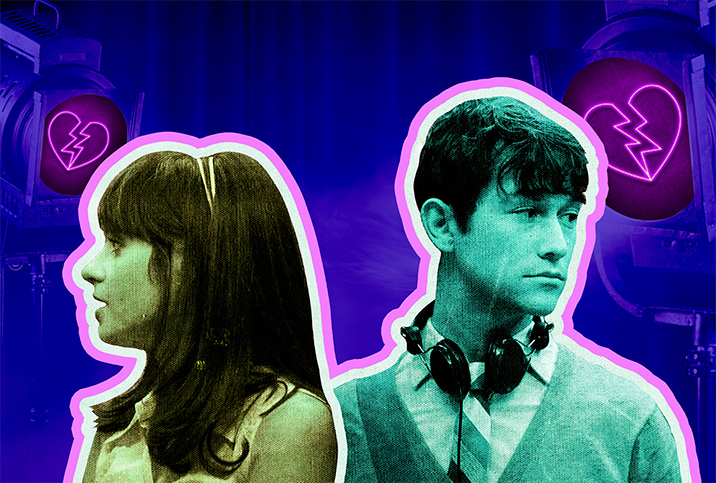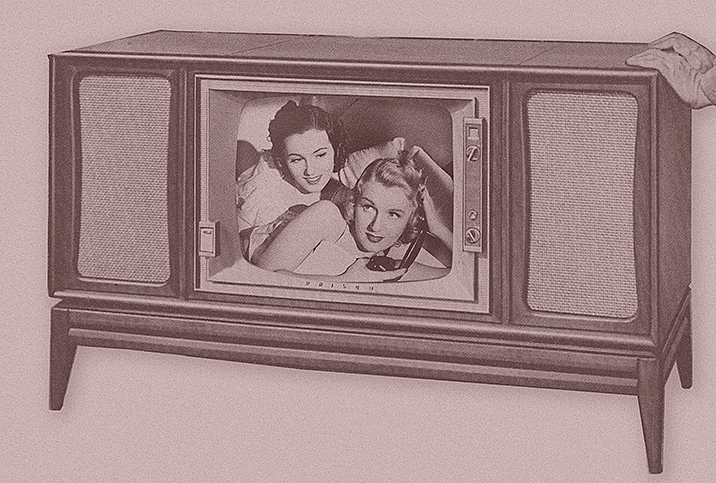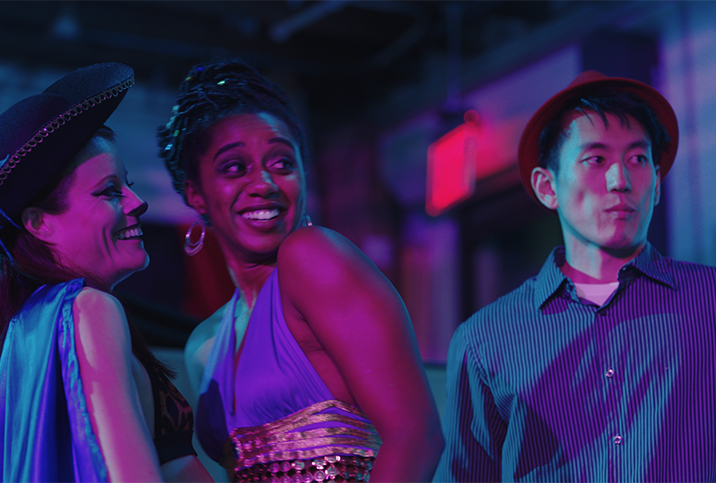Portraying Romance: How the Movies Depict Relationships

In the 2009 film "500 Days of Summer," the character Tom Hansen (played by Joseph Gordon-Levitt) said of romance, "It's these cards and the movies and the pop songs. They're to blame for all the lies and the heartache, everything."
Perhaps it was a bit pessimistic, but then again, perhaps not. How movies portray dating and relationships is often drastically different from real life—sometimes to ill effect.
Unrealistic expectations
Director Marc Webb's "500 Days of Summer" is not a love story. Instead, the film offers an examination of a relationship not meant to be. While Tom is convinced Summer (played by Zooey Deschanel) is "the one," she tells him from the get-go she isn't looking for anything serious. As the story of their relationship unfolds, it becomes clear the two are not on the same page and Tom is trying to mold their tryst into something it isn't.
Hollywood loves romantic comedies, but "500 Days of Summer" is unlike most studio releases about love. There's no happy ending for Tom and Summer, but the film remains hopeful. It illustrates how relationships are messy and full of ups and downs, and navigating them requires solid communication skills.
Of course, it's not the only movie that takes a realistic look at dating, but sadly, it's one of only a handful. According to Kalanit Ben-Ari, Ph.D., a couples therapist practicing in London, movies about dating are too often focused on the same aspect of the same stage.
"What you see is mainly the first stage of falling in love," she explained. "I don't think it's representing real life and it's created a problem, an expectation that this is where the story finishes, happily ever after and that's it."
In that sense, it appears what Tom Hansen said might be true.
For Ben-Ari, movie portrayals of dating and the beginning of relationships do not depict characters learning the skills of being in a relationship or how humans communicate and listen to each other and work through conflicts.
"Sure, romantic comedies like the 1999 movie 'Notting Hill' or the 2005 movie 'Hitch' have characters facing their fair share of challenges within the narratives in order to tell well-rounded stories, but it's overall just butterflies and rainbows in the end," she said. "Interestingly enough, dating and relationship stories are often comedies, although there are some which do not leave drama out of it."
The romantic drama
Rom-coms tackle a stage of relationships most viewers can relate to: the beginning. However, they often fast-forward the stories' relationships to the "happily ever after" stage. Ben-Ari said movies that show characters getting married straight away are even more problematic because they never get to show these characters building a healthy relationship.
"It's just about finding 'the one,'" she added. "I think it's created a problem with our culture. When we face a conflict, we think we made a mistake, we didn't choose 'the one,' rather than understanding that there's a gap in our knowledge."
It makes sense that those are the stories people want to see. Viewers want the characters to succeed, not leave things up in the air halfway through their stories. Plus, there is something to be said about portraying relationships through the lens of comedy, especially when it's about the whirlwind of being in love, such as in the 2011 movie "Crazy, Stupid, Love."
Written by Dan Fogelman, of TV series "This Is Us" fame, the movie tells the story of a man whose life is turned upside down when his wife asks him for a divorce, and his ensuing quest to rediscover his manhood and repair their relationship. Though the separation is sometimes used as a comedic device throughout the film, "Crazy, Stupid, Love" offers a touching look at characters who are navigating the troubled waters of what it takes to make a relationship sustainable.
Of course, Hollywood movies give us unrealistic expectations about love often, but you can go back to Jane Austen, Shakespeare and beyond to find examples of storytellers not getting relationships right. However, that doesn't take away the value of these stories. If it weren't for them, perhaps we wouldn't know what to look for in our own relationships.
When things get tough
If rom-coms are successful, it's partly because of their cheesiness. Some films, however, dive a bit more into what it takes to make a relationship work or what happens when it no longer does.
"Some have the courage to bring a different narrative, like 'Marriage Story,' although it was about the break-up of a relationship," Ben-Ari noted.
Writer-director Noah Baumbach's 2019 film "Marriage Story" depicts the hardships faced by a couple in the midst of a divorce. Ben-Ari wrote in her blog that the movie is quite relatable for many people.
"The film evokes the pain that we may be suffering or have suffered in our current or past relationship,'' she added.
Films like "Marriage Story" can be hard to watch because they tap into the dark side of relationships: heartache and trauma. In a similar way, writer-director Derek Cianfrance's "Blue Valentine" from 2010 chronicles the idyllic past and complicated present of a couple. Using a nonlinear narrative depicting different time periods, "Blue Valentine" explores the different stages of relationships. It may be difficult and heartbreaking to watch, but largely because it's realistic and relatable.
"The first stage is falling in love, the honeymoon," Ben-Ari explained. "But then there is ultimately the next stage which everyone moves into, which is the power struggle. Most movies, not all of them, will end in the first stage of the relationship."
"Blue Valentine," like director Rob Reiner's 1999 movie "The Story of Us," is not like that. It looks at what it means for a couple to try to work through their differences.
More serious relationship dramas don't necessarily end well for couples, just like in real life, but at least we can see there's growth for the characters as individuals. And that's when the movies get it right.


















